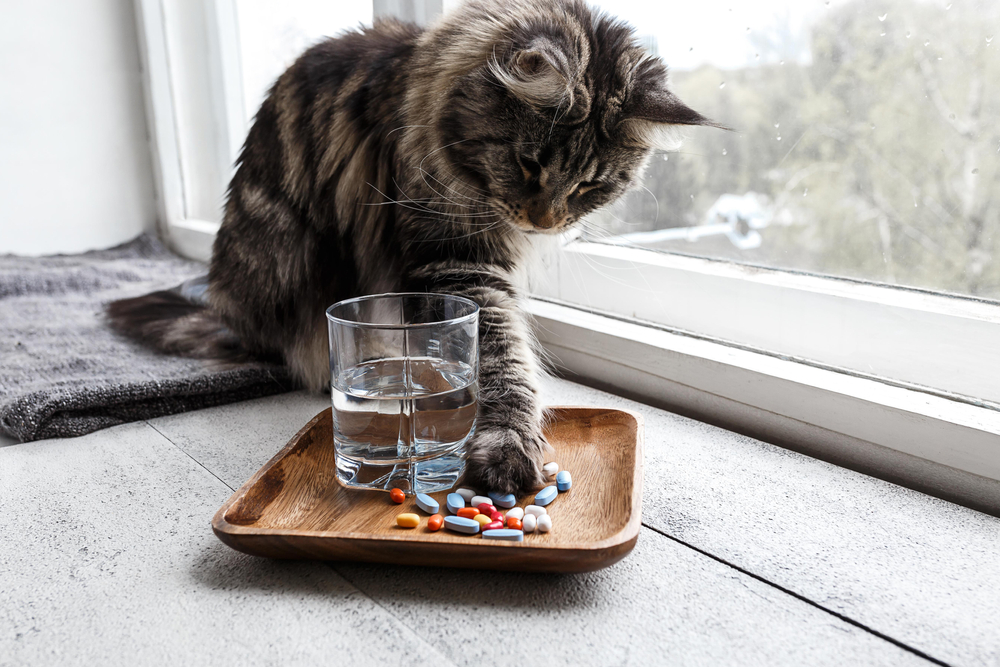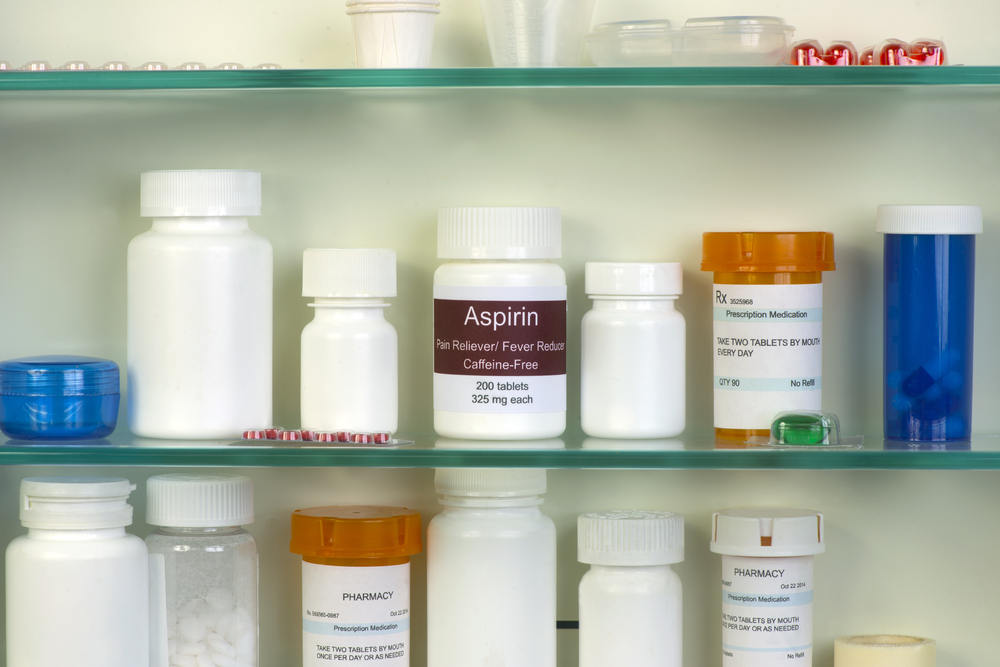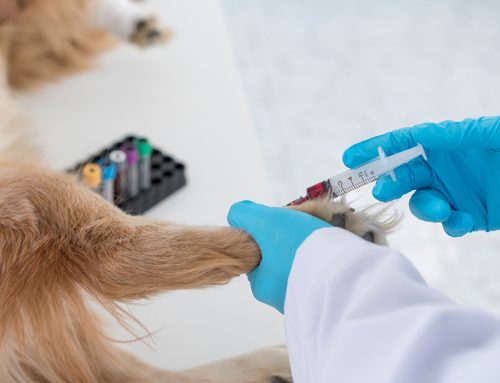If your four-legged friend becomes sick or injured, it’s natural to want to fix their ailment as soon as possible. Unfortunately, many pet owners turn to their own medicine cabinets to treat their pets, which can result in poisoning and other severe consequences. While it might seem harmless to give your pet a small dose of a medication that has helped you in the past, the truth is that pets’ bodies react differently to drugs compared to people’s bodies. Here are five reasons from our team at Boca Midtowne Animal Hospital why human medications can be dangerous for pets.
#1: Your pet’s physiology is different from yours
One of the primary reasons human medications are unsafe for pets is the stark difference in physiology between people and animals. Pets, whether dogs, cats, or other species, have unique biological systems that metabolize drugs differently than people’s systems do. Their bodies may not be equipped to process certain compounds found in human medications, leading to adverse reactions.
#2: Dose discrepancies exist between species
Another critical factor to consider is the difference in size between people and pets. What may be a suitable dose for a person could be dangerously high for a pet, even if they are of similar weight. Pets require different medication doses because of different metabolic rates that may not be proportional to their size. Administering a human medication to a pet without proper guidance can easily lead to an overdose and toxicity.
#3: Your pet’s metabolism varies from your own
Pets have unique metabolic processes that can vary greatly between species and among individual animals. Medications are metabolized differently in pets compared to people, which can result in unexpected side effects or toxicity. For example, certain drugs may be broken down more slowly in pets, leading to a buildup of the drug in their system and potential toxicity.
#4: Many human medications pose a toxicity risk to pets
Many human medications contain ingredients that are safe for people to take at appropriate doses but are toxic to pets even in small amounts. Substances such as acetaminophen (i.e., Tylenol), ibuprofen (i.e., Advil, Motrin), and pseudoephedrine (i.e., decongestants) can be lethal to pets. These medications can cause severe damage to their organs, including the liver, kidneys, and gastrointestinal tract.
#5: Human medications are often administered without veterinary supervision
Perhaps the most significant risk in giving human medications to pets is the lack of veterinary oversight. Veterinarians undergo extensive training to understand the unique needs of animals and how different medications interact with their bodies. Without proper guidance from a veterinarian, pet owners may inadvertently harm their pets by administering medications that are unsuitable or unsafe.
Dangerous human medications for pets
While any medication can be dangerous for pets, some of the most common human medications administered to pets—and the toxic effects they cause—include:
- Acetaminophen — Acetaminophen is toxic to cats and can cause severe damage to their red blood cells, leading to anemia and liver failure. Dogs are also sensitive to acetaminophen, although they can tolerate it in small doses.
- Ibuprofen — Ibuprofen is a nonsteroidal anti-inflammatory drug (NSAID) that can cause gastrointestinal ulcers and kidney failure in pets. Ingestion can lead to vomiting, diarrhea, abdominal pain, decreased appetite, and black, tarry stools.
- Naproxen — Similar to ibuprofen, naproxen is an NSAID that can cause gastrointestinal ulcers, kidney failure, and liver toxicity in pets. Signs of naproxen toxicity include vomiting, diarrhea, abdominal pain, lethargy, weakness, and seizures.
- Pseudoephedrine — Pseudoephedrine is a decongestant commonly found in cold and allergy medications. Ingestion can cause a dangerous increase in heart rate and blood pressure in pets, leading to tremors, seizures, and death.
- Diphenhydramine — While diphenhydramine is sometimes used to treat allergies in pets, it can be harmful in large doses. Signs of an overdose in pets include drowsiness, agitation, dilated pupils, rapid heart rate, tremors, and seizures.
- Antidepressants — Certain antidepressant medications, such as selective serotonin reuptake inhibitors (SSRIs) and tricyclic antidepressants (TCAs), can be toxic to pets if ingested. These medications can cause agitation, dilated pupils, tremors, seizures, elevated heart rate, and body temperature changes.
- Benzodiazepines — Benzodiazepines are a class of medications commonly used to treat anxiety, insomnia, and seizures in people. Ingestion can cause sedation, weakness, ataxia, respiratory depression, and coma in pets.
- Blood pressure medications — Medications used to treat high blood pressure in people, such as calcium channel blockers and beta blockers, can be toxic to pets if ingested, causing weakness, lethargy, slow heart rate, and collapse.
While it may be tempting to reach for human medications to alleviate your pet’s ailment, it’s crucial to resist the urge and always consult with a qualified veterinary professional first. Your Boca Midtowne Animal Hospital team can determine the appropriate treatment for your pet’s condition and prescribe medications that are safe and effective, so schedule an appointment if your four-legged friend needs care.








Leave A Comment